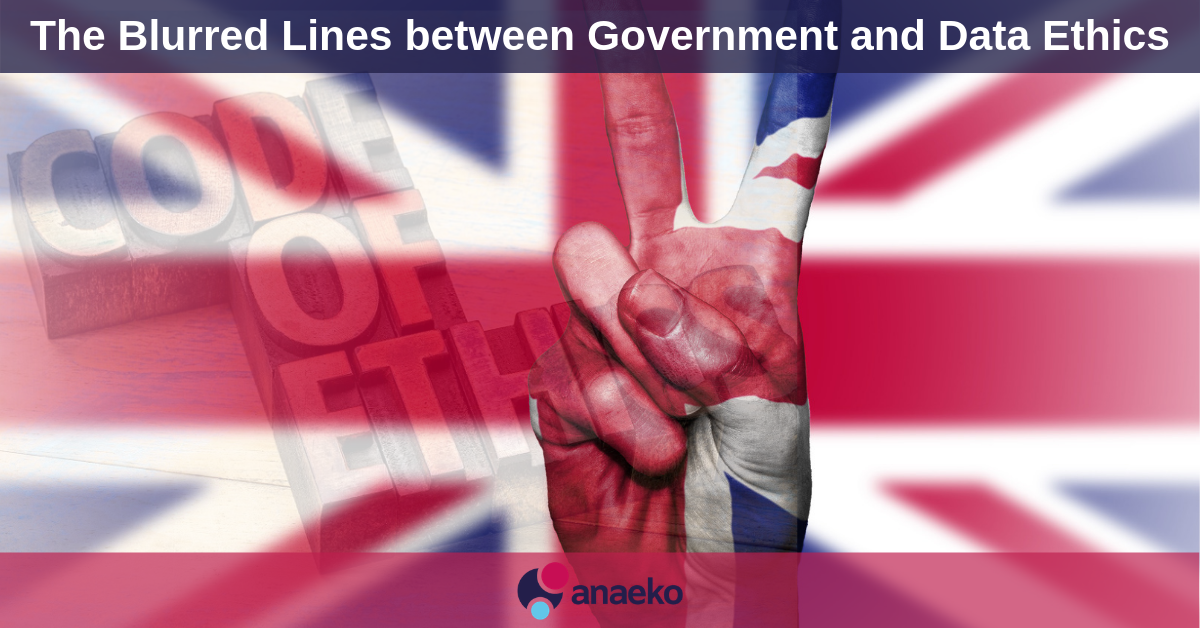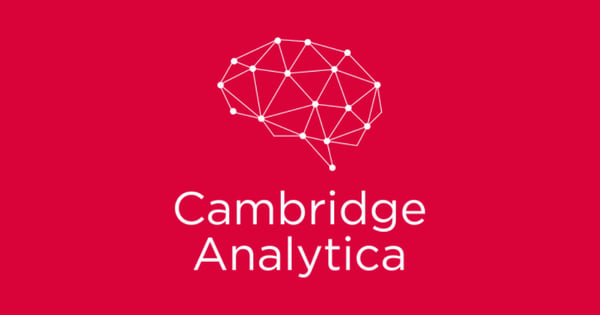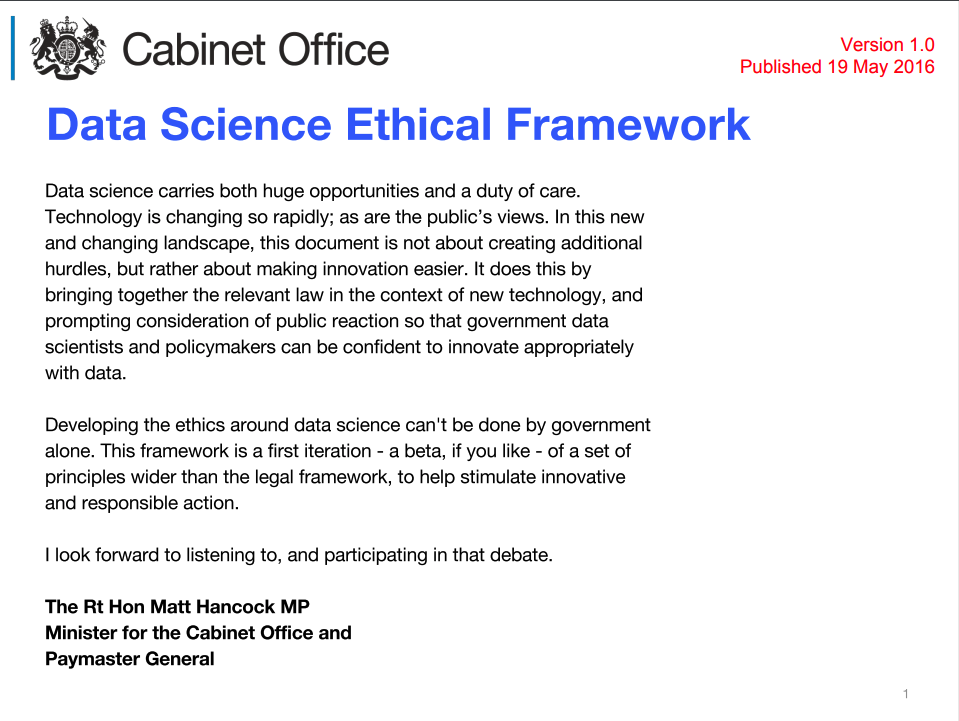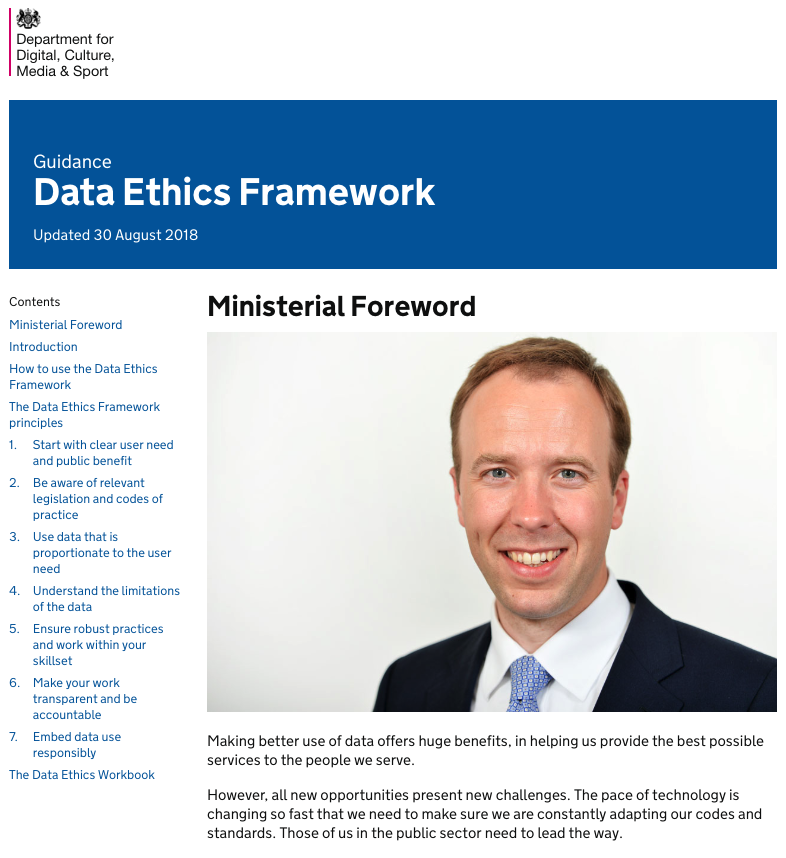
“Do unto the data of others as you would have them do unto yours".
Taken from MIT technology review on 'What Big Data Needs: A Code of Ethical Practices', this 2011 article is a great realisation of the ethical problem of data pre GDPR regulations. It suggests adopting four principles to get ahead of policymakers' well-intentioned but often misguided efforts to rule the digital economy.
The issue of data ethics is becoming increasingly prevalent. It refers to systemising, defending and recommending concepts of right and wrong conduct in relation to data, in particular personal data. This can refer to how we collect, share and work with data and the ethical practices of how we conduct these efforts.
Using Big Data for Crime Prevention
As mentioned in our previous blog 'Using big data for crime prevention', allowing an algorithm to explore datasets increases our growing reliance on automation which can promote further bias and stereotypical behaviour which in turn can reinforce attitudes about 'good' and 'bad' people/areas/attributes. The ethical impact of data science has revealed a range of complex challenges which need to be addressed in order to enable innovation to flourish.
Cambridge Analytica

Personally, for the public the pinnacle point of unethical behaviour with data came in 2017 with Cambridge Analytica. Cambridge Analytica were investigated for foul play in the EU referendum campaign and the US presidential election. It was reported that the company had acquired and used personal data about Facebook users from an external researcher who had told Facebook it was being collected for academic purposes. This came from the 'third-party' app permission which prior to the new GDPR regulations, most users were unknowingly giving apps like Facebook, information on their friends network. Nothing illegal about using third party information, it's the friends network which hadn't given permission for their data to be accessed. The truth is, no data was taken which was not already publicly available, it was a question of ethics, rather than legality with this supposed 'data breach'.
Data Science Ethical Framework 2016

Data ethics has been a huge concern for the Government. They first released the 'Data Science Ethical Framework' in 2016 which was a framework intended to give civil servants guidance on conducting data science projects, and the confidence to innovate with data.
Data Ethics Framework 2018

This publication was withdrawn and replaced by 'Data Ethics Framework' in 2018. This Framework sets out clear principles for how data should be used in the public sector.
"It will help us to maximise the value of data whilst also setting the highest standards for transparency and accountability when building or buying new data technology."
-Rt Hon Matt Hancock MP, Secretary of State for Digital, Culture, Media and Sport.
This new version focuses on the need for technology, policy and operational specialists to work together, so we can make the most of expertise from across disciplines. It is aimed at anyone working directly or indirectly with data in the public sector. The Framework encourages ethical data use to build better services and inform policies, which is all well and good but still waves the question of 'what counts?'. The Framework has 7 principles;
- Start with clear user need and public benefit
- Be aware of relevant legislation and codes of practice
- Use Data that is proportionate to the user need
- Understand the limitations of the data
- Ensure robust practices and work within your skillset
- Make your work transparent and be accountable
- Embed data use responsibly
Each principal does not imply a mark criteria as to how one carries out their collecting, sharing and working with data, it assumes that one uses their own cognitive skills and intuition to formulate a project, service or procure software that is 'ethically compatible'. If companies like Google are being caught out for breaching GDPR regulations, more needs to be done to disseminate the 'do's' and 'don'ts' of ethical data use in the private and public sector.
Anaeko believe that data should be the backbone of all decisions. We specialise in Integrated Analytics services and deliver intelligent reports driven by Machine Learning and Domain knowledge to enable you to make the right decisions. Ethical and moral data use is a key component in how we execute our work and in 2018 we achieved ISO 27001 certification for our commitment to information security management standards.
If you are curious about data or just want to learn more about how we can help your organisation, just talk to our team!
See the services Anaeko offer on DOS3 Framework!
Topics: Data Analytics, Government, DOS3, Professional Services, ethics, Big Data, Cambridge Analytica




